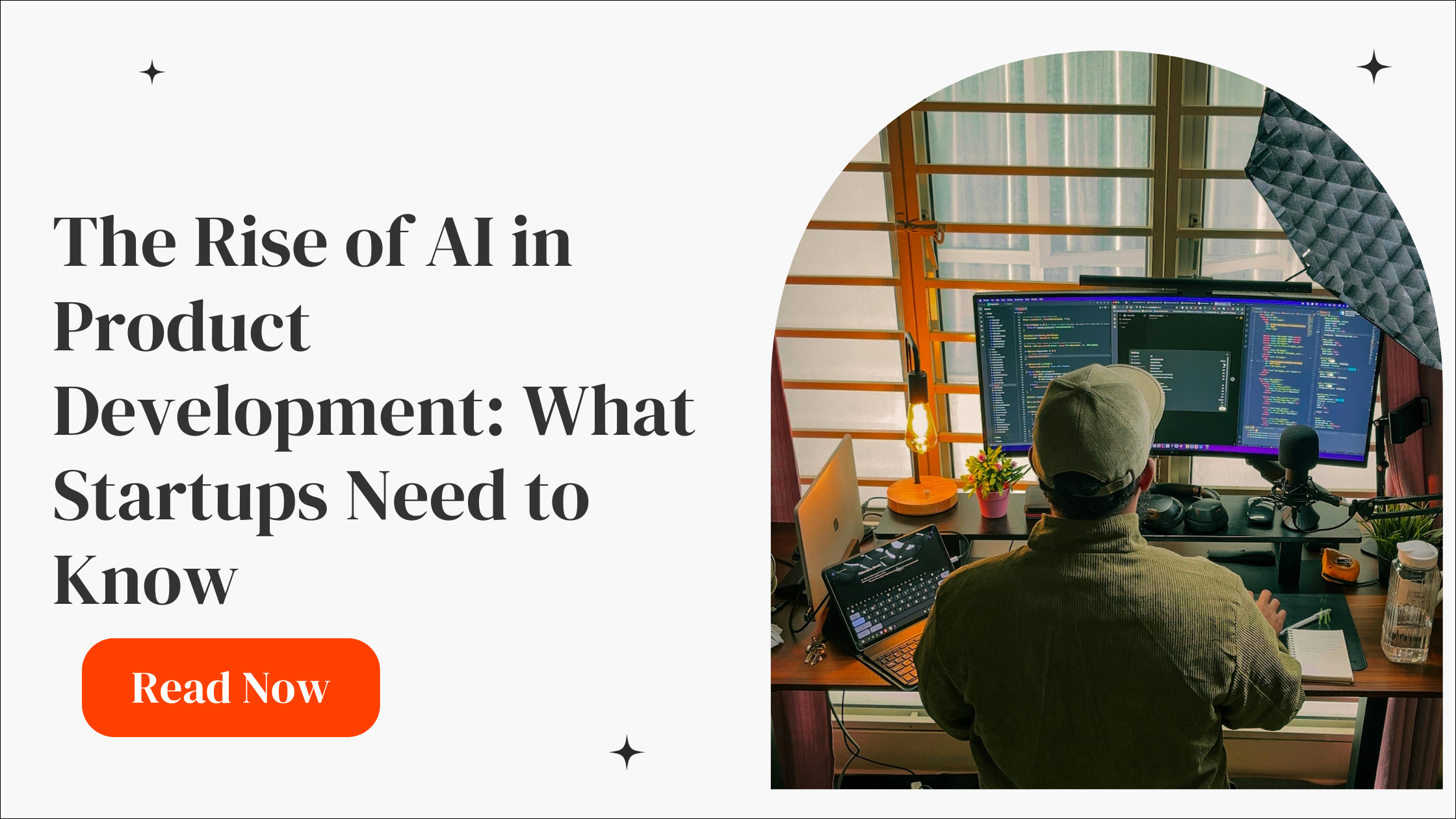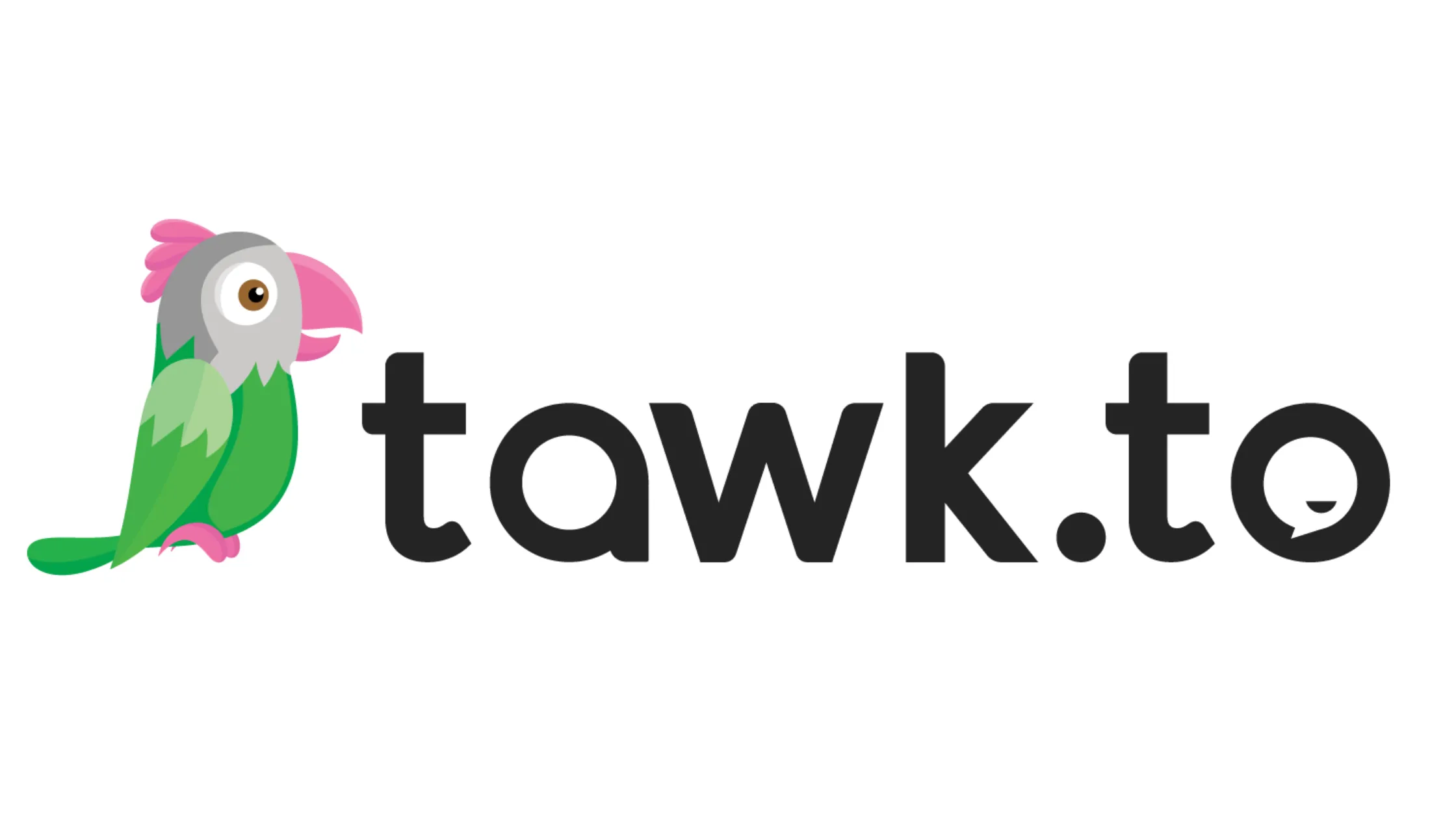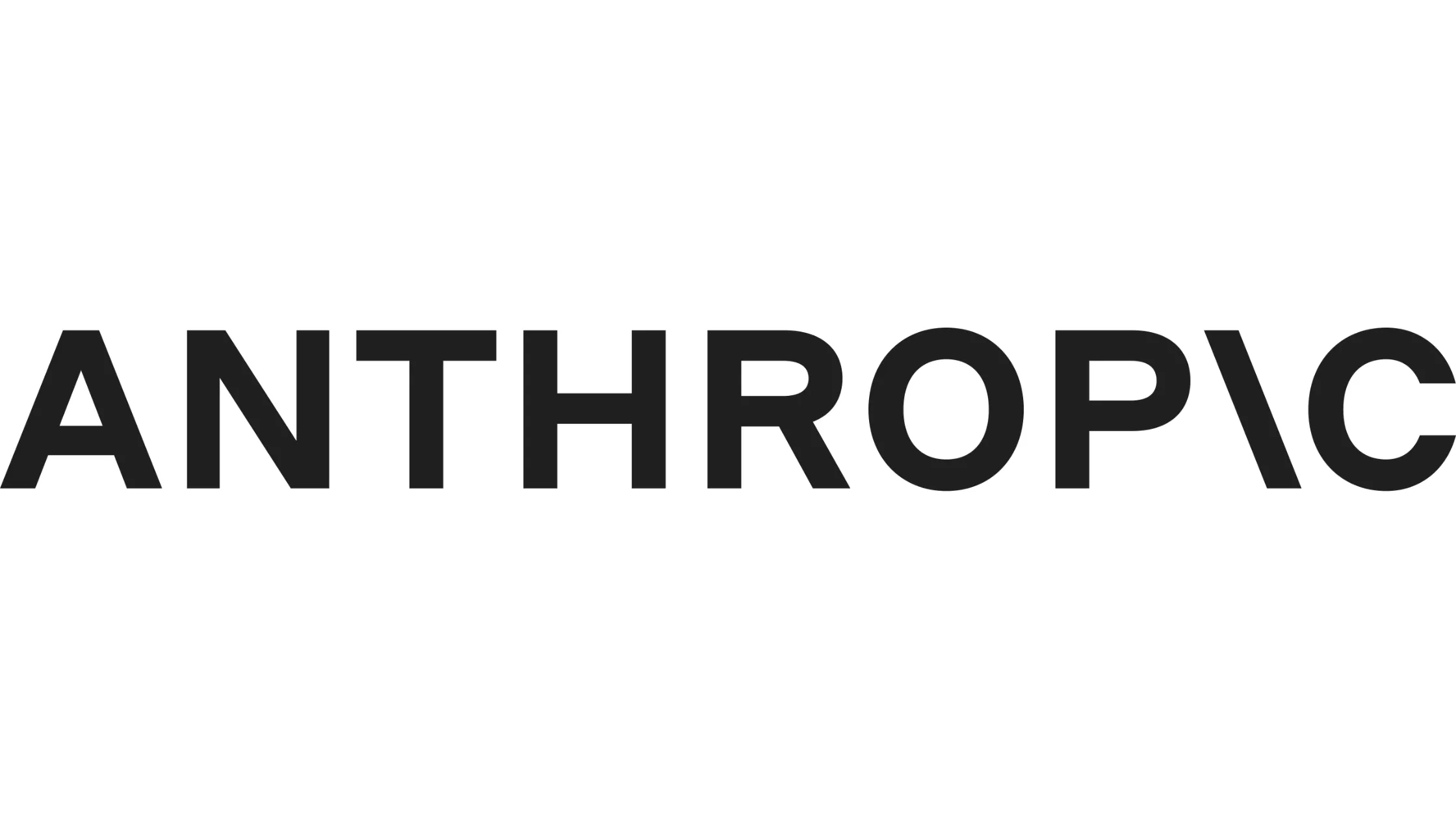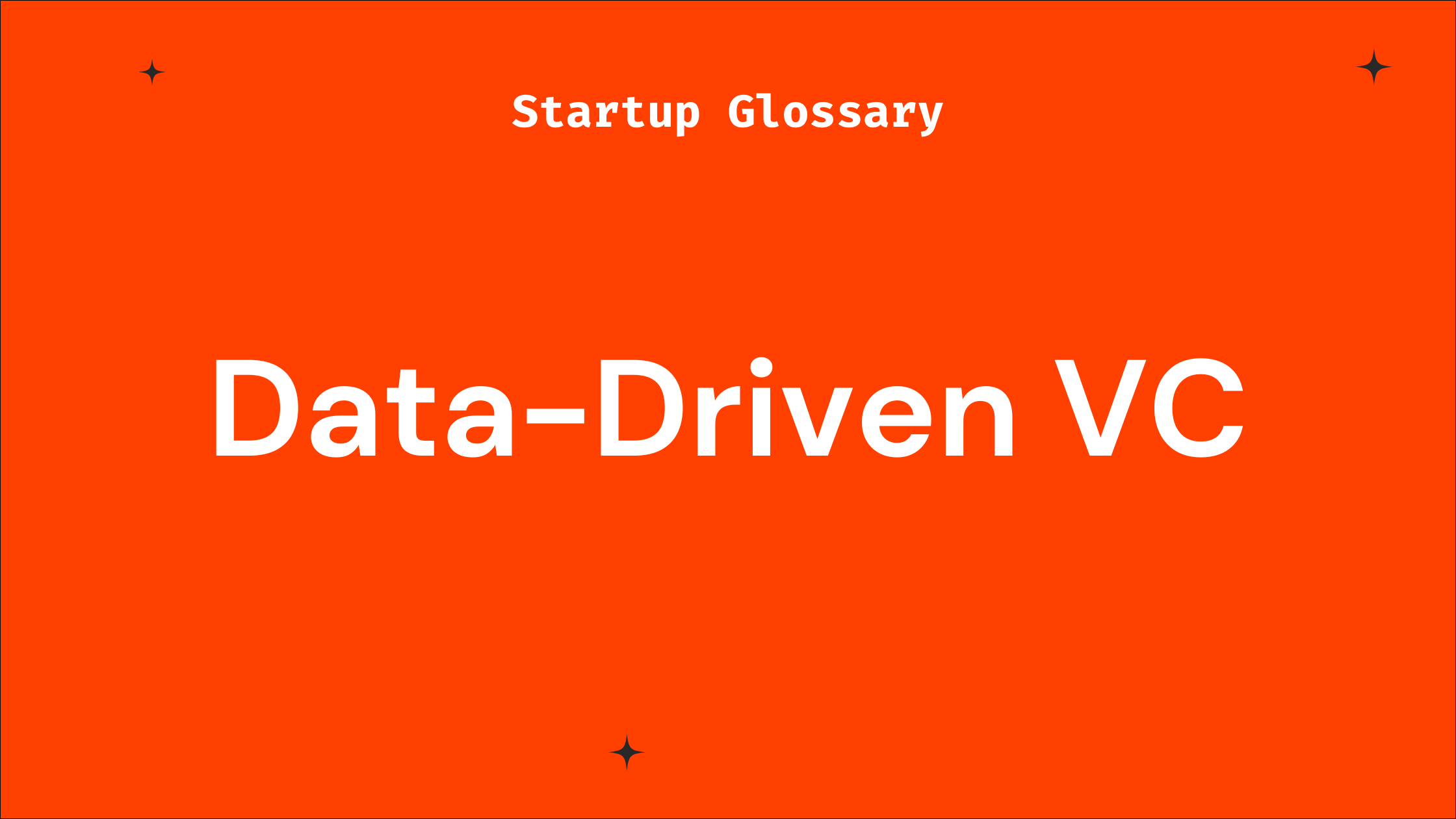
The Future of Product Development: AI and Automation Revolutionizing Startup Growth
AI and automation are revolutionizing product development for startups by speeding up processes, reducing costs, and enhancing innovation.
The future of product development is here, and it's being shaped by two game-changing forces: AI and automation. As startup founders, we’re always looking for ways to build faster, smarter, and more cost-effectively. AI and automation are making this more achievable than ever before. But what does this mean for early-stage startups that are still figuring out product-market fit? Let’s dive into how AI and automation are reshaping product development and why these tools can be a game-changer for you.
What is AI and Automation in Product Development?
AI in Product Development
Artificial Intelligence (AI) refers to the simulation of human intelligence in machines that are designed to perform tasks typically requiring human thought—like decision-making, pattern recognition, and learning from experience. In product development, AI can help automate complex tasks, provide valuable insights, and even create new features autonomously.
Think of it this way: instead of you or your team having to dig through mountains of data or manually code new features, AI does the heavy lifting. For example, AI can analyze user behavior to improve features, suggest new ones, and even debug issues before they become critical problems. This frees up your team’s time to focus on strategy and innovation.
Automation in Product Development
Automation is about using technology to complete tasks with little to no human intervention. In the context of product development, automation can handle repetitive processes like testing, deployment, and monitoring, which speeds up the development cycle and minimizes human error. It’s like putting your product development on autopilot for specific tasks, leaving more room for creative problem-solving.
Tools like continuous integration/continuous delivery (CI/CD) pipelines, automated code testing, and deployment scripts help startups accelerate product iterations and reduce the time from code to customer.
Why AI and Automation Matter for Startups
Speed Up Your Time to Market
As a startup founder, time is often your most valuable resource. AI and automation allow you to build and iterate on your products faster, meaning you can go to market quicker. Whether you’re building a prototype or scaling an MVP (Minimum Viable Product), tools powered by AI and automation help compress development timelines.
For instance, an AI-powered design tool might suggest layout improvements or code-generation platforms could reduce the amount of manual coding your team has to do. With automation, routine tasks like testing and deployment happen instantly, enabling rapid cycles of development and feedback. This speed is crucial when you’re racing to capture market share or raise your next funding round.
Reduce Costs Without Sacrificing Quality
We all know how expensive full-time engineering teams can be, especially when you're just starting. By using AI and automation, you can cut down on operational costs without sacrificing the quality of your product. AI can assist your engineers by debugging or auto-generating code, helping you avoid costly delays or mistakes.
Automation also allows for scalable processes without additional hires. For example, automated testing tools can check for bugs across hundreds of test cases faster than any human team could. This reduces the need for large QA teams and frees up resources for other parts of the business.
Enhance Product Features and Personalization
With AI, startups can build smarter, more personalized products. AI tools can analyze user data to provide insights that help you improve your product, tailor it to user preferences, and create a more engaging experience. For instance, if you’re building an e-commerce platform, AI can suggest products to users based on their behavior and preferences, similar to how Amazon recommends items.
Personalization is increasingly important in today’s competitive landscape, and leveraging AI can give your startup a significant edge.
Practical Applications of AI and Automation in Startups
AI-Powered Customer Support
Many startups are turning to AI-powered customer support tools, such as chatbots or voice assistants, to handle routine customer queries. These tools can answer frequently asked questions, troubleshoot basic issues, and escalate more complex problems to a human agent. This not only improves response times but also saves your customer support team valuable time, allowing them to focus on more strategic tasks.
Automated Testing and Deployment
One of the most time-consuming tasks for software teams is testing and deploying new code. Automation can streamline this entire process, ensuring that new features are rolled out faster and with fewer errors. Continuous integration and continuous delivery (CI/CD) pipelines automatically test and deploy code as it's written, which means your team can push updates in real-time, keeping you ahead of the competition.
AI-Driven User Insights
AI-driven analytics tools help you gather deep insights into how users interact with your product. These insights can inform your development roadmap, helping you prioritize the features that matter most to your users. Instead of guessing what your users want, AI helps you understand their behavior and needs, allowing you to build features they actually use.
Challenges and Considerations
Cost and Complexity
While AI and automation are incredibly valuable, implementing these technologies comes with its challenges. Building an AI system or automating a complex workflow can be costly upfront, and not every startup has the resources to invest in these technologies right away.
That said, you don’t need to go all-in immediately. You can start small by using off-the-shelf AI tools or lightweight automation systems. Many of these tools are designed to integrate easily with existing platforms, making it easier to adopt them without overhauling your entire tech stack.
Choosing the Right Tools
There are plenty of AI and automation tools on the market, but not all of them are right for your business. Be strategic about which tools you adopt. Do you need AI to improve your user experience, or would automating your development pipeline provide a bigger boost to your bottom line?
It’s essential to evaluate your startup’s specific needs and choose tools that fit your goals. If you’re not sure where to start, consult with a development partner who has experience implementing these technologies for startups.
The Future of AI and Automation in Product Development
AI and automation are just beginning to scratch the surface of what’s possible in product development. As the technology evolves, we’ll see even more applications—from AI writing code autonomously to fully automated product management systems. Early-stage founders who embrace these tools now will find themselves at the cutting edge of innovation, able to outpace competitors and deliver better products to their users faster.
How AI and Automation are Empowering Non-Technical Founders
Bridging the Technical Gap
For non-technical founders, the complexity of software development can be intimidating. AI and automation tools are helping bridge that gap, empowering founders to manage and contribute to product development without needing deep technical knowledge. For example, AI-assisted code generation tools like GitHub Copilot or auto-deployment platforms make it easier for non-technical founders to participate in the development process.
This democratization of technology means that founders can now prototype and test ideas quickly, reducing the dependency on technical co-founders or full-time engineers. Automation tools can handle much of the repetitive work, giving founders more room to focus on the big picture—customer acquisition, business strategy, and growth.
Low-Code and No-Code Platforms
Low-code and no-code platforms are another breakthrough in this space. These platforms allow non-technical founders to build and iterate on their products with minimal coding expertise. Whether you're looking to launch a marketplace, a SaaS platform, or even a mobile app, these tools let you design, deploy, and test products faster than ever before.
Platforms like Webflow, Bubble, or Airtable are making it possible for startup founders to build MVPs without hiring a large engineering team from day one. This significantly reduces the initial costs and allows for rapid experimentation.
AI and Automation in Growth Hacking
Data-Driven Marketing
One of the biggest advantages of AI is its ability to analyze massive amounts of data and make data-driven recommendations. When it comes to growth hacking, AI tools can help identify the most effective marketing channels, target the right audience segments, and personalize content for better engagement. AI-powered marketing platforms like HubSpot or Marketo can automate email campaigns, analyze user behavior, and suggest optimizations based on real-time data.
For early-stage startups, leveraging AI for marketing can be a game-changer. Instead of relying on gut feelings or trial and error, you can use data to make informed decisions that maximize your marketing budget.
Automated Customer Segmentation
AI can also be used to segment customers more effectively. By analyzing patterns in user data, AI can help you categorize your audience into meaningful segments, allowing for more targeted marketing efforts. For instance, if you run a SaaS platform, AI could help you identify which users are more likely to convert to paying customers, allowing you to focus your resources on the most promising leads.
This kind of automated customer segmentation saves time and ensures that your marketing efforts are more focused and effective.
Why Horizon-Labs.co is the Right Partner for AI-Driven Product Development
At Horizon-Labs.co, we specialize in helping startups navigate the complexities of modern product development. With our experience in AI, automation, and rapid prototyping, we ensure that founders can leverage the latest technologies to build innovative, scalable, and market-ready products. Whether you're a technical or non-technical founder, our team can provide the expertise and support you need to bring your vision to life, faster and more cost-effectively than traditional methods.
Frequently Asked Questions (FAQs) about AI and Product Development:
Q: How can AI improve the early-stage product development process for startups?
A: AI can streamline early-stage product development by automating time-consuming tasks such as feature prioritization, user behavior analysis, and code testing. This allows startups to focus on creative problem-solving and strategic decisions, reducing the overall development time and helping founders iterate on their MVPs faster.
Q: What types of automation tools should startups consider implementing first?
A: Startups can begin with automation tools like CI/CD pipelines for automated code testing and deployment, along with customer relationship management (CRM) systems that automate lead generation and customer communication. These tools help improve operational efficiency and reduce the manual work involved in the development process and customer engagement.
Q: How does AI help startups make data-driven decisions?
A: AI tools can analyze large datasets quickly, providing actionable insights from customer behavior, sales patterns, and product performance. This allows startups to make informed decisions about which features to build, which markets to target, and how to optimize user experiences without relying solely on guesswork or trial and error.
Q: What are the potential risks of relying too heavily on AI and automation in product development?
A: While AI and automation can significantly boost efficiency, relying too much on them without human oversight can lead to issues like overlooking user-specific needs or failing to innovate beyond automated suggestions. There’s also the risk of depending on a tool that doesn’t fit your startup’s evolving needs, potentially causing bottlenecks in the future.
Q: Can AI and automation be used for non-technical aspects of a startup’s operations?
A: Yes, AI and automation can extend beyond product development into areas like marketing, customer support, and business analytics. AI tools can automate personalized email marketing campaigns, manage customer interactions through chatbots, and provide deep insights into user data, helping founders optimize their operations across the board.
Q: How will the future of product development change with the further advancement of AI and automation technologies?
A: As AI and automation continue to evolve, we can expect more intuitive and adaptive tools that allow for even faster development cycles, real-time customization of products, and smarter predictive analytics. Startups will be able to build more complex solutions with smaller teams, reducing costs while increasing the quality and personalization of their products.
Q: What are some AI-driven platforms startups can use for rapid prototyping?
A: Startups can leverage AI-driven platforms like Figma for design automation, GitHub Copilot for code generation, and Bubble for no-code app development. These tools help founders quickly move from concept to prototype, allowing them to test ideas and gather user feedback without significant investment in full engineering teams.
Q: How does AI influence the scalability of a startup's product?
A: AI makes scalability easier by automating repetitive tasks, optimizing performance through real-time data analytics, and allowing for dynamic resource allocation in cloud-based environments. As your user base grows, AI can adapt the system’s capacity and performance, ensuring that your product scales efficiently without needing a large team to manage these processes.
Q: How can AI enhance the user experience in product development?
A: AI can personalize user experiences by analyzing behavior patterns and preferences, delivering customized content, recommendations, or features based on individual user interactions. This leads to a more engaging product that adapts to each user’s needs, increasing satisfaction and retention.
Q: Is it possible for a startup to integrate AI without hiring AI specialists?
A: Yes, many AI-powered platforms and tools are designed to be user-friendly, allowing startups to implement AI without needing in-house AI specialists. Tools like OpenAI’s GPT or pre-built AI models in platforms like AWS, Google Cloud, or Microsoft Azure can be easily integrated into your existing products, helping you leverage AI without the need for deep technical expertise.
Q: Can AI help with product-market fit discovery?
A: Absolutely. AI can analyze market trends, competitor products, and customer feedback to help startups identify gaps in the market and assess where their product fits. By using AI for data analysis, startups can better understand user needs and refine their products to align with customer expectations and demands, improving the chances of achieving product-market fit.
Q: How do automation tools support a lean startup methodology?
A: Automation tools reduce the time and cost associated with manual tasks, allowing startups to build and test MVPs rapidly. This aligns perfectly with the lean startup approach, which emphasizes quick iterations and learning from user feedback. Automation helps founders avoid over-investing in features that may not resonate with users by enabling faster pivots and adjustments.
Q: What’s the role of AI in minimizing technical debt for startups?
A: AI can help minimize technical debt by optimizing code quality, automating code reviews, and identifying potential issues early in the development process. By reducing errors and inefficiencies, AI allows startups to maintain cleaner, more scalable codebases, minimizing the technical debt that can slow down future development efforts.
Q: How does AI support product iteration and A/B testing?
A: AI-driven tools can automate A/B testing by dynamically analyzing user engagement data and identifying which variations of a feature perform best. This reduces the manual effort of setting up and analyzing experiments, making it easier for startups to continuously iterate and improve their products based on real-time user feedback.
Q: Can AI predict product development outcomes?
A: AI can provide predictive analytics by examining historical data, user behavior, and market trends. These predictions can offer insights into how new features might perform or which areas of the product are likely to encounter issues, helping startups make more informed decisions about where to invest their development resources.
Q: How do AI and automation affect the security of a startup’s product?
A: AI can enhance security by detecting anomalies, identifying vulnerabilities, and responding to cyber threats in real time. Automated security tools can continuously monitor systems for suspicious activity, helping startups maintain a robust security posture without needing a full-time security team.
Whether you're validating an idea, scaling an existing product, or need senior engineering support—we're happy to talk through it. No pitch, just a conversation. From MVPs to AI integrations, we've shipped 60+ products since 2019. Tell us what you're building and we'll share how we can help.
Need Developers?
We help companies build ideas into apps their customers will love (without the engineering headaches).
















For Startups & Founders
We've been founders ourselves and know how valuable the right communities, tools, and network can be, especially when bootstrapped. Here are a few that we recommend.

Mistakes to Avoid When Building Your First Product
Learn the key mistakes founders make when building their first product—and how to avoid them for a faster, smoother launch.
Read more
The Rise of AI in Product Development: What Startups Need to Know
Learn how AI is transforming product development for startups. From MVPs to scaling, here’s what founders need to know in today’s AI-driven world.
Read more
No-Code vs. Custom Development: Which is Right for Your Startup?
Weighing no-code vs. custom development? Learn which is right for your startup depending on stage, budget, and product complexity.
Read more
What is Mixpanel?
Learn how Mixpanel helps startups track user behavior to improve products and accelerate growth with clear data-driven insights.
Read more
How Tawk.to Can Boost Your Startup’s Customer Support Game
Learn how Tawk.to can benefit startups by enhancing customer support and engagement. Perfect for early-stage founders!
Read more
Grow Your Startup With Anthropic's AI-Powered Tools
Discover how Anthropic's cutting-edge AI tools can accelerate your startup's success. Learn about their benefits and see why they can be trusted by startups.
Read more
What is Data-Driven VC?
Learn what a data-driven VC means and how such investors can benefit your startup’s growth and fundraising journey.
Read more
What is Blockchain?
A beginner-friendly guide on blockchain for startup founders, covering key concepts, benefits, challenges, and how to leverage it effectively.
Read more
What is Cybersecurity?
Learn cybersecurity basics tailored for startup founders. Understand key risks, best practices, and how to protect your startup from tech threats.
Read more
What is Seedcamp?
Learn what Seedcamp is, how its European seed fund and accelerator program work, and how founders can use its capital, mentorship, and network to scale their st
Read more
What is AngelList?
AngelList is a prime platform connecting startup founders to investors, talent, and resources to accelerate early-stage growth.
Read more
What is 500 Startups?
Learn what 500 Startups (now 500 Global) is, how its accelerator and seed fund work, and when founders should consider it—plus tips for early-stage startups.
Read more.png)